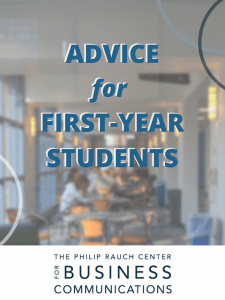By Communication Consultant Xinyi Cui (Accounting and BIS, ’22)
Professor Mir is a Supply Chain Management professor for SCM 186 and 345, which help business students learn basic principles of supply chain in the real world. Prior to joining the academic world, he worked as a merchant mariner on oil tankers and he loves to share his experiences with the students.
Professor Mir believes communication should be relatable, efficient, and effective at sharing information.
To better explain his opinion of communication, Professor Mir used the group projects from SCM 186 as an example. He wants students to pay attention to details like the fonts for their slides, which can ensure that all slides are consistent and visually appealing to their audience. He advises that, before starting their work, all the teammates need to figure out the structure and layout of the presentation, which will largely decrease the burden on the person who clears up the final version. Another tip of having better reports and slides for his course is to check for effective messages. The best way of attracting the audience is to help them learn something new–a new idea or opinion–about the assigned topic for your work. Think about what your audience needs to know and make sure to deliver the message effectively.
When talking about the importance of communication in real life, Professor Mir mentioned the bullwhip effect. His professional area, supply chain management, involves different types of businesses from suppliers. Effective communication between these stakeholders becomes key. For example, if a single seller decided to make big discounts on a product, aiming to motivate demand, very soon all the products would sell out. Without effective communication, the producer would think that they had a larger demand and therefore would increase their production. When the seller stopped giving discounts, the products would be stuck in the warehouse. You can tell how crucial business communication is for controlling production.
Furthermore, for those students who are going to graduate soon, Professor Mir provided some valuable suggestions for career communication! In the first place, do mock interviews and utilize all the resources the campus provides because Professor Mir shared that he did not realize he needed to make better eye contact until getting feedback after a practice interview. Once you are hired, Professor Mir recommends that, before starting your work, you should take some time to understand the differences between different formats, from reports to presentations.
Professor Mir’s wide-ranging experience illustrates how valuable communication skills are in college and beyond. Work on developing your communication skills. If you want advice or feedback, try meeting with one of our Communication Consultants. We are peer tutors who will help you become an adept communicator.
Get information and resources about our center at The Philip Rauch Center for Business Communication.
Mir, Saif. An Interview with Professor Mir from RCBC. 21 July 2020.


